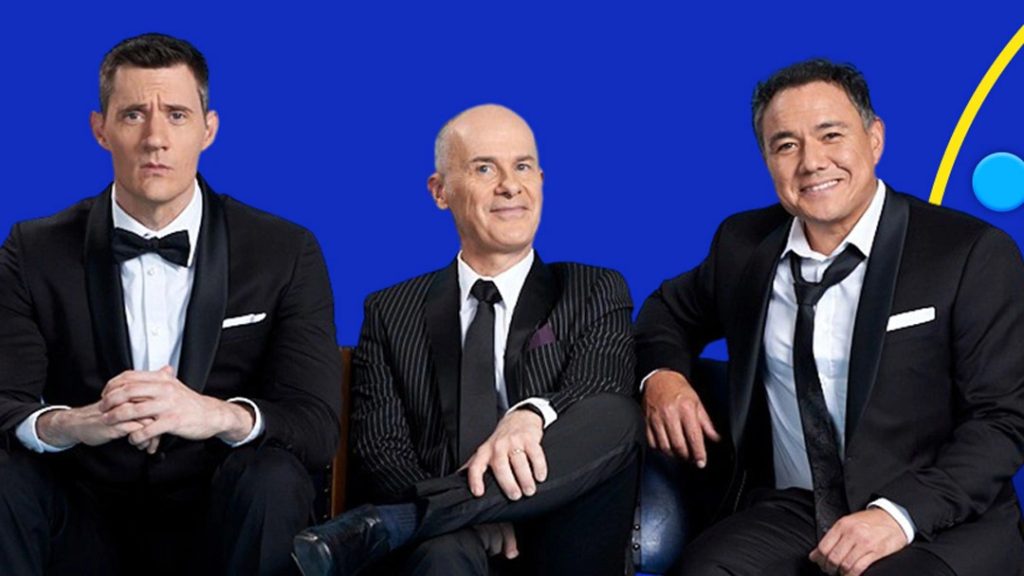Australian Tumbleweeds
Slightly Obscure Musical Reference Time
Spicks and Specks is back! Again. For what, the fifth time now? At least we’re getting a full season (10 episodes), so there’ll be plenty of time to remember just how forgettable the whole thing is.
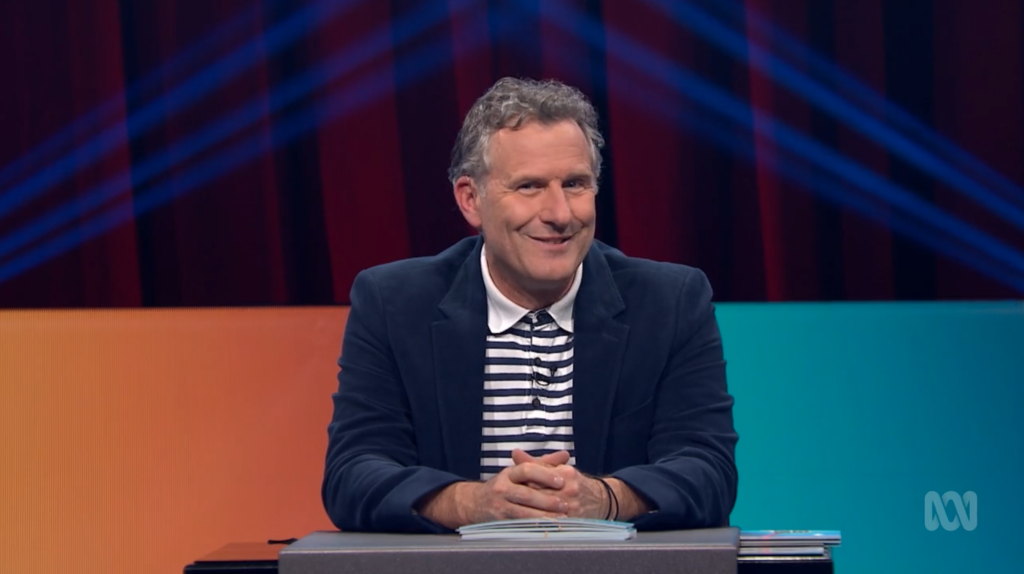
When Spicks and Specks made its debut back in 2005, music was a very different thing. For one, the past still existed and music had a future; now there’s just a whole bunch of noise on various streaming services, and whatever you’re into could be coming at you from any direction.
Which you might think would be a problem for a show like Spicks and Specks, where much of the point is either straight-up nostalgia or the energy you (hopefully) generate from smashing two usually separate time periods together. A modern performer doing a song with The Wiggles? Getouddahere!
Fortunately, with the show now seventeen years old and with a pair of team captains in Alan Brough and Myf Warhurst who are now on board not because they’re experts on music but because they’re Alan Brough and Myf Warhurst, the deal here more often than not is just nostalgia for the good old days of Spicks and Specks.
Put in more musical terms, this is yet another comeback tour doing the greatest hits. The most modern piece of technology shown in the opening credits is an original iPod; otherwise it’s cathode ray TV sets and vinyl records all the way. One of the first questions was a reference to a Disney movie from 1967!
The guests might have current hits – or at least, current work – but the chances of anyone watching at home buying a ticket to their next pub or club performance is slim at best. When Bec Charlwood explained her answer with “people under 30 would know”, that ruled out the entire at-home audience.
Still, not every show on the ABC has to be relevant to the under-50s – though it’d be nice if Spicks and Specks had a run time that was under 50 minutes, because the current version feels bloated, self-indulgent, and more than a little aimless no matter how often they accidentally show the wrong music clip or have Dave O’Neill hold up balloon animal versions of the cast.
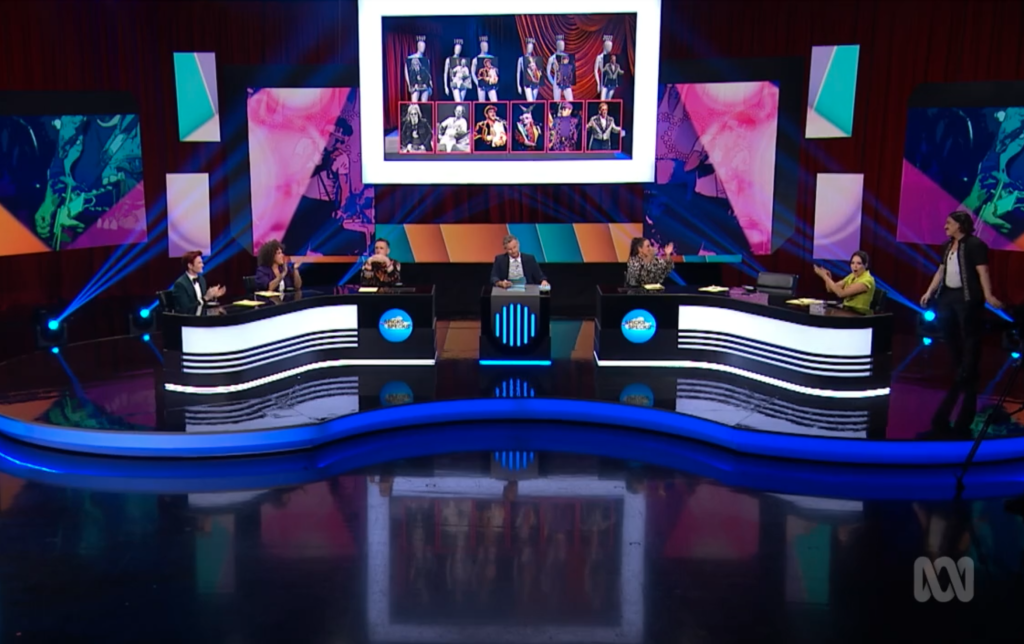
Yes, this is only barely a quiz show and by having musicians on you’re all but guaranteed to get some decent anecdotes throughout the episode. The musical numbers break things up too, and host Adam Hills remains a rock-solid pair of hands who can be relied to keep the moderately competent laughs coming like a freshly upgraded Wil Anderson.
And while Warhurst and Brough have mellowed over the years – gone for the most part are the days when Brough’s drive to succeed brought a palatable chill to proceedings – that fits the more cruisey, chuckles-over-laughs, nostalgia-driven vibe.
But there’s a reason why 20 minute prog rock epics were shouldered aside by 2 1/2 minute punk rock tracks.
The Kids Are Alright I Guess
Ok, so Shaun Micallef’s Brain Eisteddfod is a quiz show. Not a comedy quiz show – a good old-fashioned, we’re seriously keeping score so you’d better give the correct answer, quiz show. But is it funny?
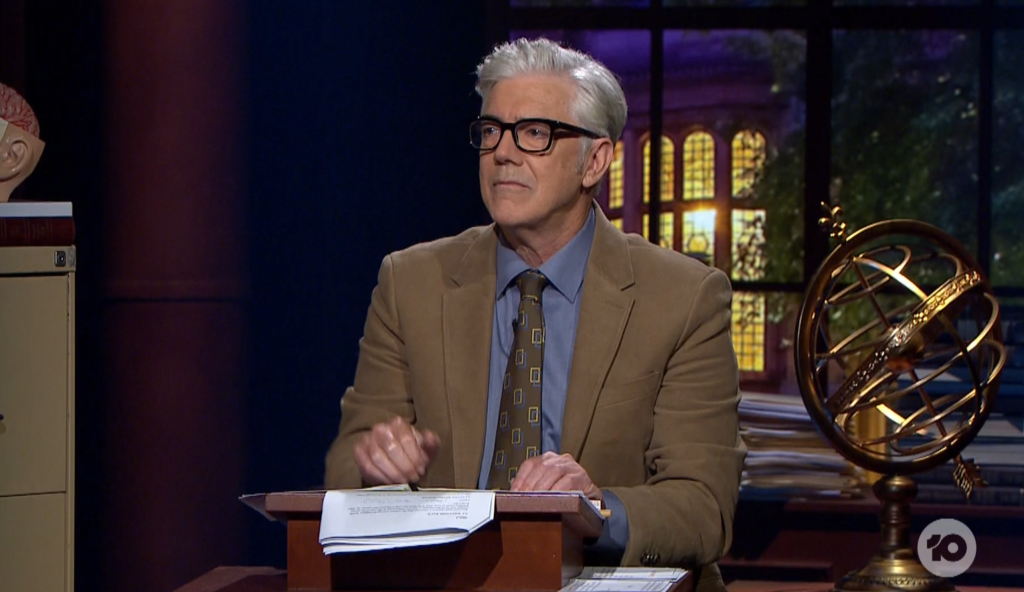
Two episodes in and we can safely answer that question with… kinda? It’s hosted by Shaun Micallef, a man who has proven over and over that he can get decent laughs out of very little. And often this seems like an exercise in generating “very little”, as he takes somewhat seriously his job of being the quiz master on a show that is most definitely not in any way making fun of the Year 11 students answering the questions.
That’s not to say comedy doesn’t arise naturally out of these interactions. For one, the contestants, as you might expect, tend to lurk slightly further towards the “smart-arse” end of the teen spectrum. Micallef does a good job of giving them enough rope, without ever yanking on it too hard.
It’s tempting to say the whole thing is a showcase for just how good Micallef is at working with students, but considering Rove was pretty good at it too with Are You Smarter Than a 5th Grader, how hard can it really be?
His style of comedy is pretty well suited to this kind of show too, which is fortunate because this is not a series that’s otherwise ripe with comedic possibilities. He’s often self-depreciating without being annoying about it, and he’s good when it comes to spotting the comedy that comes from taking a typical statement just a little bit too far.
(he’s also not afraid to throw in a semi-random Christopher Walken impersonation, which is always good value whatever the context)
Jokes about the grand prize being $20,000 worth of tuckshop duty from a MasterChef runner-up aside, this is a fairly standard reboot of long forgotten series like It’s Academic and University Challenge. It’s a format where much of the appeal comes from seeing kids being studious and team players rather than violent thugs or professional thieves.
Will this all end like the classic UK film If…., where the students take to the roof of their school and machine-gun their useless teachers? We can only hope.
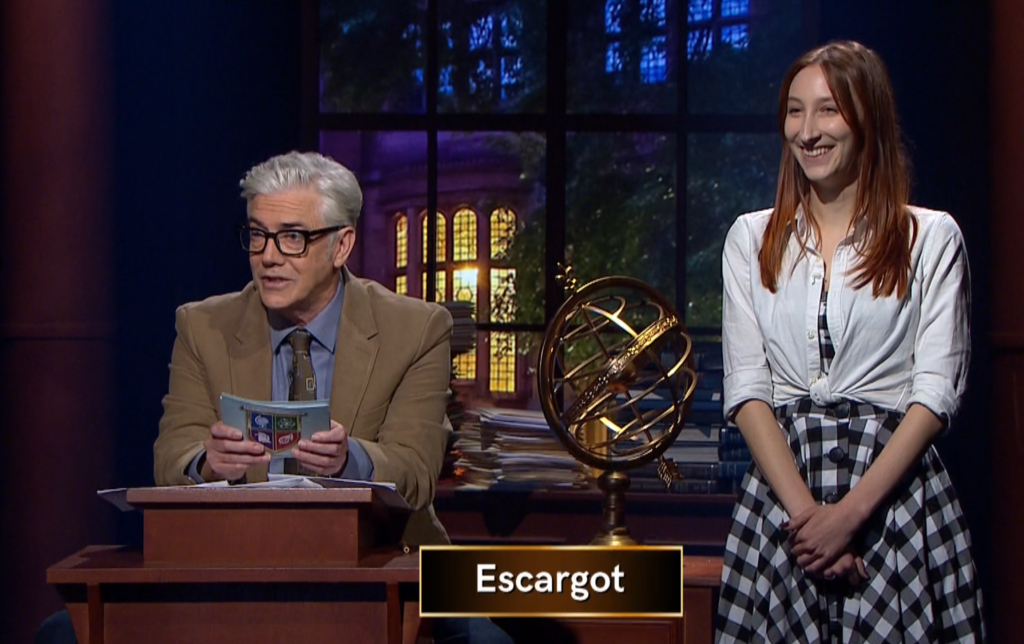
Far more likely a result is a series of moderately entertaining family-friendly episodes where the viewers at home can either feel smugly superior to the would-be brainiacs, or take comfort in the fact that the next generation is smarter than the one currently sitting at home watching television.
If you’re not a quiz fan, Shaun Micallef’s Brain Eisteddfod is a bit of a mixed bag. The format is a throwback to an earlier era, when television didn’t have to work so hard to grab our attention*, but Micallef himself is a showman who constantly puts in real effort to keep the interest level up. Remember those quiz shows Peter Helliar used to host? This isn’t one of them.
The result is something that couldn’t exist without Micallef. But like a lot of his side projects over the years, it feels a lot like an experiment in seeing if there’s still life left in an old concept – and as always, the answer is “sure, just so long as Shaun Micallef is hosting”.
We’ll pass on Dave Hughes’ Brain Eisteddfod, thanks.
.
*though it is noticable that each episode starts off with a fair amount of audience-pleasing comedy banter and then gradually turns into a fairly hardcore quiz show
Life’s a Beach
Press release time!
One holiday house. Eight love stories. ABC heats up Wednesdays in August with
Summer LoveThe ABC is thrilled to announce that the new eight-part comedy series Summer Love premieres Wednesday 31 August at 9pm on ABC TV and ABC iview.
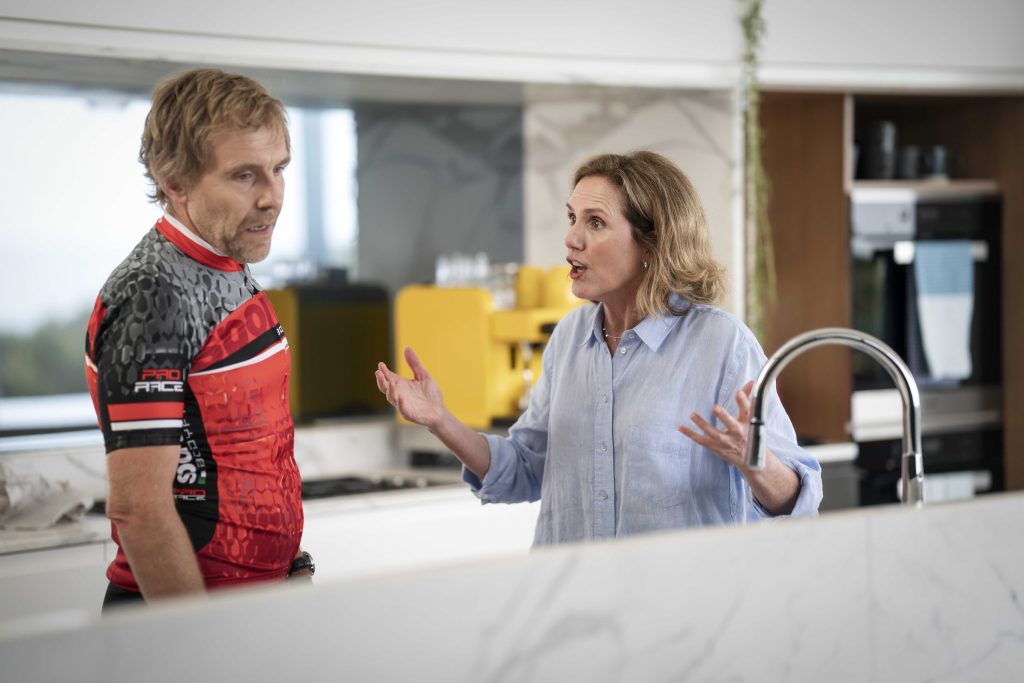
Created and produced by Upper Middle Bogan’s Robyn Butler and Wayne Hope, Summer Love is a laugh-packed anthology of eight very different summer holiday stories. Starring an impressive line-up of Australian talent, including Miranda Tapsell, Patrick Brammall, Harriet Dyer, Nazeem Hussain, Stephen Curry, Sibylla Budd, Tim Draxl, Alison Bell, Bjorn Stewart and Annie Maynard, the only thing the episodes have in common is the setting – the same dream holiday house by the beach.
Our Summer Love stories and characters include: old friends Jules (Sibylla Budd) & Tom (Patrick Brammall) & Jonah (Stephen Curry) & Steph (Harriet Dyer), who discover their friendship may have reached its expiry date; surprise instant parents Kelly (Miranda Tapsell) & Craig (Richard Davies); aspiring rapper Imran (Nazeem Hussain) and his surgeon girlfriend, Nabilah (Sana’a Shaik), who grapple with Imran’s abandonment issues; chalk-and-cheese couple Luke (Tim Draxl) & Olly (Harry McNaughton), whose one-year anniversary brings a surprise interloper into their relationship; strangers Marion (Robyn Butler) & Eddy (Wayne Hope), who find themselves forced to stay together after a double booking; Charlie (Chenoa Deemal) & Zeke (Bjorn Stewart) whose trial separation is not going to get in the way of their annual beach weekend; sisters Hannah (Alison Bell) & Alex (Annie Maynard), who leave their chaotic family lives behind for a holiday recharge; and troubled teenager Frankie (Charlotte Maggi) is surprised when unknown visitor Trevor (Keith Robinson) suddenly arrives on the front lawn.
Some questions have been answered, but others remain. Will it be better than the ABC’s last attempt at an anthology comedy, the Peter Helliar-driven rom-com series It’s a Date? We can but hope so – especially as going by recent comments it sounds like Helliar has slapped a trademark on the whole “comedy anthology” idea.
“But we still hope it can get done because there’s actually been a few shows that, to be honest, have taken the format and put their own spin on it.”
So yeah, watch out Gristmill, you just might have stepped on some pretty powerful toes with this one.
Getting the gang back together again
What’s the biggest thing in comedy right now? Nostalgia:
- A few weeks ago, Seven broadcast another Hey! Hey! It’s Saturday special, focusing on the Red Faces segment.
- Spicks and Specks is coming back in August (although the ABC have accidentally already aired some episodes already).
- TV Tonight and other media outlets recently reported that there’s a new Kath & Kim 20th anniversary special coming soon.
- Last Monday, fans of The Late Show celebrated 30 years of the program.
But is nostalgia for old shows a good thing? Aside from the obvious, that money and energy going into reunions and anniversaries mean less money and energy for new comedy, reunions and revivals can often be a very bad idea.
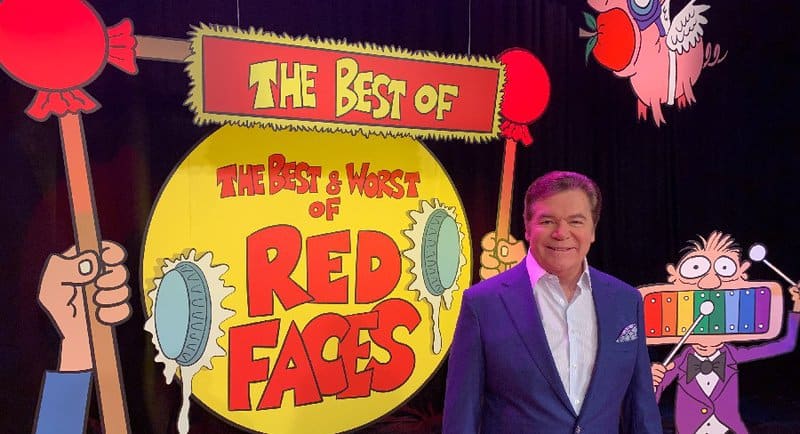
Hey! Hey! It’s Saturday is the obvious example. The revived series (2009/2010) may have been popular when it started but it later sank in the ratings. An older audience, who loved and remembered the original series remained loyal, but those younger and less rusted-on drifted away.
The mistake Daryl Somers and the team made was to just make more episodes of Hey! Hey! without considering the need to update it for modern audiences. Who needed Phunny Photos, The Great Australian Joke or even Red Faces in 2009/2010 when the internet was full of this kind of content?
There was also a major failure to respond to social changes in society since the show’s heyday. It may have been possible for white men to sideline women and make jokes about non-white and LGBT+ people back in the day, but this is not acceptable in the 21st Century.
A better outlet for nostalgia for Hey! Hey!, which also lowers the chance of broadcasting anything offensive, is the recent shows on Seven. Just present a selection of “classic clips” between chats with people who were on the show and voila! This is not to forget the sexist, racist and homophobic legacy of Hey! Hey! It’s Saturday, but at least these more recent specials haven’t added to it.
Even for shows which aren’t problematic, like Kath & Kim, the announcement of a reunion can provoke a mixed reaction. Kath & Kim was a good show, so who wouldn’t want to see it come back? Except, new episodes of a popular show from the past are always a bit disappointing (see Blackadder Back and Forth), even if they’ve had a major retooling (the Sex and the City sequel And Just Like That).
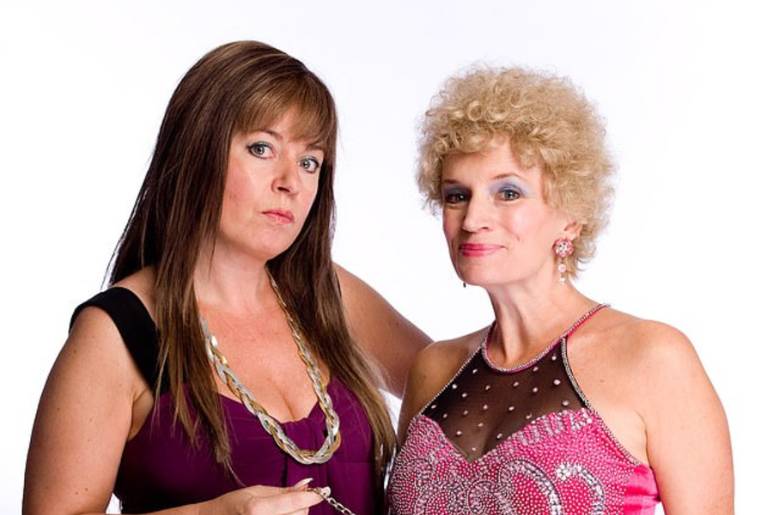
So, it was a relief to hear that the Kath & Kim special will also be clips-based:
Gina Riley and Jane Turner have reportedly shot 10 minutes of new footage for the show, which will run as a 20 to One style format of hits, memories and unseen clips from the vault.
A TV insider said: “The Kath & Kim project filming in Melbourne is a clip show. There is no deep storyline, no new episode.
“The conveyor belt of black SUVs outside the NEP Studio are celebrities who are there to talk about their favourite Kath And Kim moments.”
Following on from news that Sonia Kruger and Celia Pacquola are amongst said celebrities, Collingwood’s Mason Cox is also said to be in the mix.
Personally, I have faith this will draw inspiration from the Friends reunion rather than 20 to One, although it seems no studio audience.
The 30th anniversary of The Late Show was also largely clip-based, with the Working Dog team sharing a number of clips packages on social media. But it was perhaps a surprise that such an important and much-loved Australian comedy show was not celebrated more last week*. Its legacy, which includes Frontline, Martin/Molloy, The Castle, Crackerjack, Get This and Have You Been Paying Attention?, is surely one of the most impressive in Australian comedy. Worth a proper celebration, you’d think.
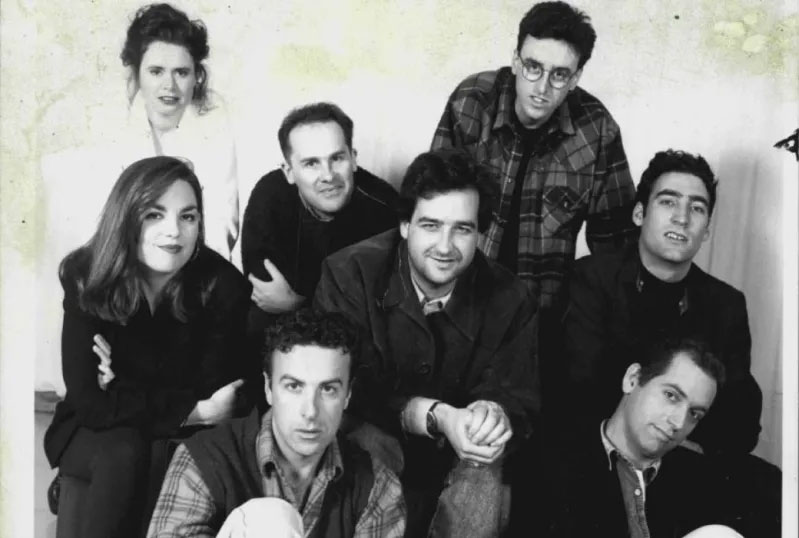
But a Late Show reunion special would have been hard to pull off, not least because the “Funnyman Feud” would have made Mick Molloy and Tony Martin’s opening duologue pretty awkward. A better option would have been a documentary/special along the lines of the Friends reunion. It’s a shame there wasn’t the will from either The Late Show team or a broadcaster to do this.
On the other hand, various members of The Late Show team were out and about in the media last week, with Jane Kennedy offering some evergreen advice to anyone trying to emulate the team’s success during an appearance on Sammy J’s ABC Melbourne breakfast show:
Sammy: You all started together, Jane, as part of the D-Gen in the 80s, and you’ve all gone on to do so many different things, Frontline, Martin/Molloy, all the Working Dog shows that have come since. How important do you think The Late Show was in that career trajectory for all of you? Do you think all those things would have happened anyway, in different forms or on different timelines, or was The Late Show really the nucleus for some of that creative energy?
Jane: …We’d already come from a radio background before we did television…and we were a group of friends, so it wasn’t like some television programmer plucked us all out of NIDA and WAPA and other sort of various institutes and put us randomly together. And also, the guys had done revues at uni…so you know that there’s something organic there…
Sammy: You’ve just touched on a point… I’ve been put in the unfortunate position, many times more than I’d like, of being thrown together by producers into situations with others where the writers don’t even meet the cast and I always say, well, the only truly successful comedy shows coming out of Australia have been when groups of friends have organically got together and built something up, and overseas as well, and it seems like people struggle to learn that lesson time and time again. But I always use Working Dog as the prime example of people who are friends, and it was a natural progression.
Jane: Well, I think you’re friends because you’re drawn together by the same interests and humour and I think any advice…and people come to us all the time and say ‘How do I get started with what I do?’…and my advice always to people is, if you can, collaborate, find your peeps, find your soulmates and people who have the same sense of humour, and I think it’s incredibly difficult to do things on your own, so it’s amazing, you know, to be able to find some people you can collaborate with.
And while this wasn’t the 30th-anniversary celebration of The Late Show that a die-hard Late Show fan would have dreamt of, it’s extremely good advice. Let’s hope the kinds of programmers and executives who often make the mistake of shoving a bunch of promising young people together and expecting comedy gold to result (hello, almost every sketch show from the last 20 years!) were listening.
* Having said that, other shows from that era such as The Comedy Company, Fast Foward/Full Frontal and The Big Gig, haven’t been the subject of major retrospectives either, ABC 90 Celebrate!‘s Big Gig reunion aside.
A Lingering Aftertaste
We all know that Aftertaste is barely a comedy so let’s just take it as read that the first episode of series two was pretty much as laugh-free as you might have expected if you’d ever actually given the prospect of a second series of Aftertaste a moment’s thought. So here’s another question: why isn’t it about food?
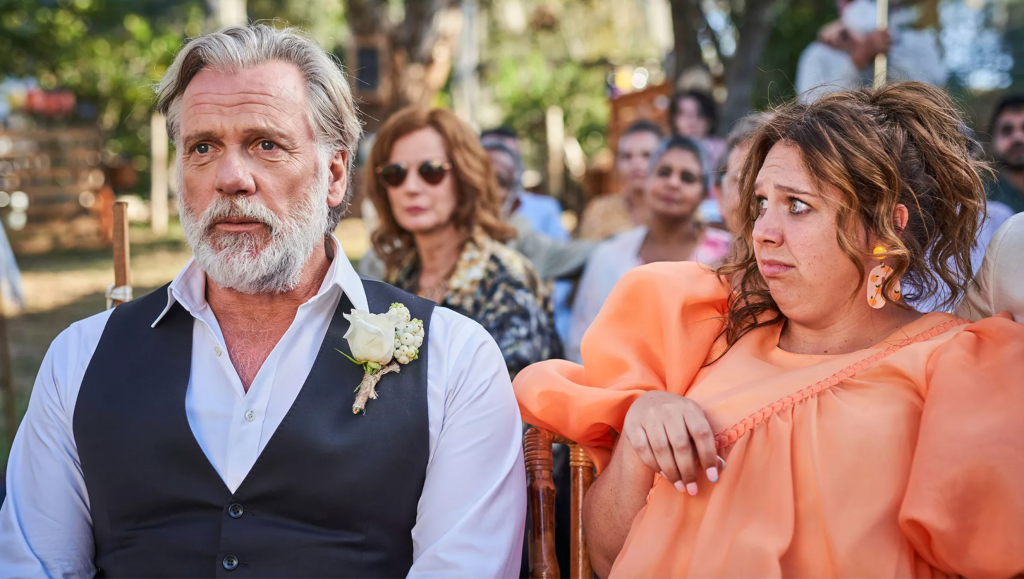
The set-up for series one was probably the best thing about it. High profile, high maintenance chef Easton West (Erik Thompson), having torched his bridges overseas, slinks back to his family home in the Adelaide Hills, where his young would-be pastry chef niece Diana (Natalie Abbott) latches onto him. They’re the original odd couple!
This dynamic didn’t really go much of anywhere, as for some reason we instead got a bunch of stuff about wacky drug trips and a kindly old bugger who might as well have had I DIE AT THE END OF EPISODE FIVE tattooed on his forehead. Did Diana storm off at the end of last season having baked a cake with a slightly offensive message written on it? Sure did!
Series two flips the script. Now Diana is the famous one, a star of the UK culinary scene who returns home with a handsome fiance in tow and the world on a string. Meanwhile Easton has given up cooking, lives in a dump, sleeps in a bunk bed, and can’t quite figure out if laconic local landowner Margot (Rachel Griffiths) wants to sleep with him or not.
The big problem here is that the first season did almost nothing with the central dynamic besides have Easton insult Diana while she pulled various faces; reversing it barely changes anything. As for the other subplots, after last series did we predict that no-longer dead grandma June would turn up to cause havoc? Sure did!
So let’s not linger on the fact that out two leads are forced to work together as part of a community service sentence for firearms charges. Yes, that’s basically the thirty year-old joke from Seinfeld about a shitty sitcom based on someone being sentenced to being their enemy’s butler. Australian television, ladies and germs.
But where’s the food?
This is a dramedy about two chefs. Food in all its forms has never been more popular in Australia, and not just because eating out is pretty much the only reason to leave the house. We are living in a golden age of foodie content and yet this show – set in a region known for its food and wine, based on two characters who are, let’s say it one more time, both chefs – barely seems interested in exploiting what is easily its strongest selling point.
C’mon: one of the biggest shows on Australian television is literally just people cooking food. People love reality shows about cranky chefs struggling to get their slacker kitchen staff in shape. You barely have to turn your head to find some food-related content people will tune in for. And the first episode of series two of Aftertaste? Wacky hijinx at a wedding. Does the bride spilling wine on her wedding outfit count?
We don’t expect Aftertaste to be funny. That ship has sailed. But when it can’t even be about food? At a time when food is a sure-fire crowd-puller? Don’t come the raw prawn with us.
Oh Yeah, Vale Housos: The Thong Warrior
Housos: the Thong Warrior finished a few weeks back. What more can we say?
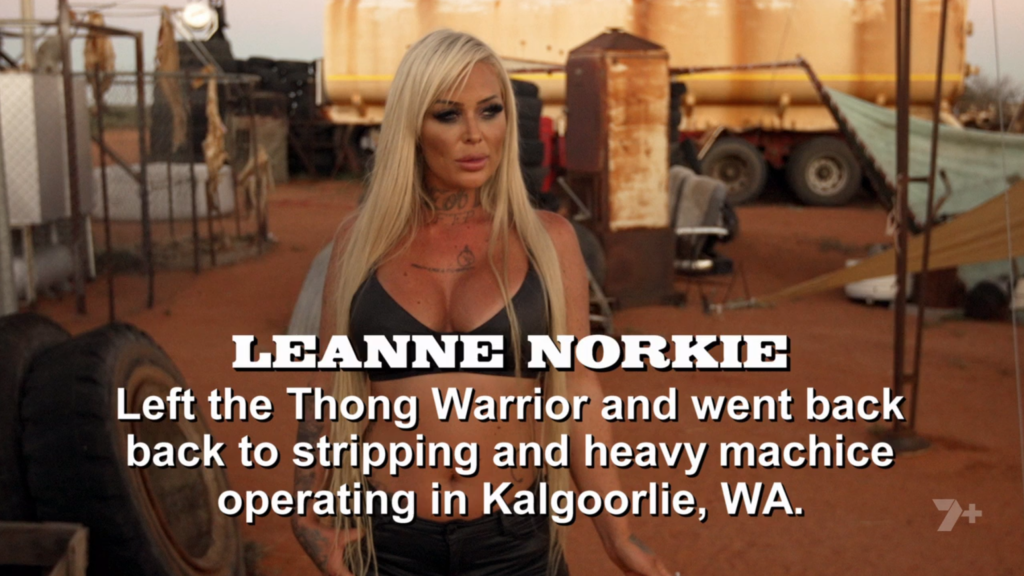
Maybe lay off the “machice” for a while?
The Wrong Kid Died: Vale The Weekly 2022
Sure, this was the week we learnt that the next series of Mad as Hell would be the last but don’t worry, Charlie Pickering’s got some news that’ll turn our nation’s frown upside down:
“We will be back in December to wrap up 2022 with The Yearly, and we’ll be back next year with season nine of The Weekly“
You know, it’s hard to imagine that The Weekly being axed would get coverage in any news media, so it’s probably good that now we don’t have to spend the next few months getting our hopes up.
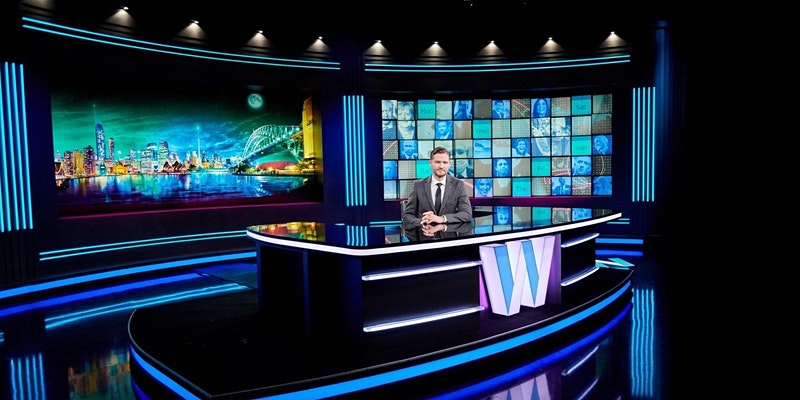
It wasn’t all that long ago that the ABC didn’t have even one regular news satire program. There was whatever The Chaser were up to, which was sometimes adjacent to the news but was usually more about politics in general. A bit further into the past there were panel shows like The Glasshouse and Good News Week along the lines of “comedians poke fun at the headlines”. But regular, topical, news-based comedy? Nowhere to be seen.
And now with the end of Mad as Hell, those days are back.
The Weekly has lifted its game slightly over the last few weeks. But that’s almost entirely down to a boost in the number of comedian-fronted segments and interviews. The fact this shift has come at the end of the series makes it feel more like “oh shit, we better use up these pre-recorded segments”; what was the deal with giving Corey White a new segment – introduced as “a new segment” – on the very last episode of the year?
Maybe this was an actual decision to make a funnier show. But why now? They’ve been doing just fine so far without comedy. And when you’re making a show that actually gets better once you get to your end-of-run clearance sale, questions need to be asked.
The Weekly and Mad as Hell usually rate roughly about the same, and yet – even accounting for our biases – you’d be hard pressed to argue that they both make the same impact on the public consciousness. Now, if they could somehow figure out how to make Gruen News, then that ungodly creation would probably blow both shows out of the water. But it’d just be a slower, yappier, more annoying version of Have You Been Paying Attention? and nobody needs that.
So it’s possible to argue – look, we’re about to do it right now! – that for the last few years the ABC has really been running one long 30 episode news satire show a year, only there’s been a middle segment hosted by Charlie Pickering that just isn’t as good as the other bits. The question is, can The Weekly stand alone?
Look, there’s no reason why it can’t… if you’re willing to ignore every single thing that’s come before. Currently operating as a “news recap”, it seems utterly unaware that simply recapping the news with the occasional “check out that funny name!” joke is completely pointless in 2022. Everyone is walking around carrying a portable supercomputer connected to a global web of information: if you want to get caught up on the news, you’re not waiting until 8.40pm on a Wednesday.
And yet the final Weekly of 2022 led with a big segment and interview on the well worn and worn out subject of the mass resignations designed to force Boris Johnson to resign. This was, as they say, “old news”, complete with “old jokes” and “Charlie Pickering”.
Oh yeah, Pickering. The Weekly started as a show that needed a bland host so the other, wackier cast members could play off him. Then the other cast members left and bland is all that remains.
Then again, what else does The Weekly actually have to offer its audience apart from Pickering’s dubious charms? Sure, if you’ve been desperately looking for a disinterested rich nihilist’s take on the week you’re in luck, but half the time the show can’t even figure out how to make that point of view anything more than a sustained smirk.
To wit: what was going on with Luke Heggie’s segment about dud roots in veggie boxes that turned into a (comedy?) attack on farmers? Saying the opposite of conventional wisdom to get laughs is fine – though it worked for Tom Gleeson, so yeah, “fine” – but this segment just felt all over the place.
Then again, a sneering, punch-down joke like “I don’t mind donating to farmers, but I do mind when thieving shelf stackers steal my donation” is pretty much prime The Weekly. Fuck those minimum wage workers who provide a vital service, they’re thieving scumbags. Yeah, it’s a joke – and that’s the joke.
We’ve enjoyed much of Heggie’s work this season and Australia definitely needs more comedy misanthropes. But judging by the (slightly) muted reaction from the usually nuts Weekly audience, even those sugar-addled fruit loops weren’t sure how to take this bit.
In 2022 The Weekly feels like a collection of slapdash segments thrown together by a team of clock-watchers with only a passing interest in the news and zero interest in how it relates to the real world. This was sustainable when there was something better around the corner; when all we have to look forward to is (say) Chris Taylor’s News Blammo, not so much.
It’s impossible to predict the future of The Weekly because (and we’re going to be charitable here) every year it reinvents itself. At the moment the only sure thing is that there’ll be a desk and Pickering will be sitting behind it for at least some of the show; everything else is up for grabs.
Well, apart from it being funny.
Pilot error: Time to Die and The Bush Blonde vs The World
10’s pilot showcase for 2022 dropped on 10 Play recently and, it’s fair to say, the two comedies on offer, Time to Die and The Bush Blonde vs The World, aren’t the greatest shows ever.
The Bush Blonde vs The World is the worst of the two. It involves the Bush Blonde (Nikki Osborne), aka Bushie, a good-looking but dim-witted rural type, trying to solve big problems. In one sequence, she tries to become Prime Minister, with the slogan “Yeah, nah, fuck it!” In later parts of the show, she tries to save koalas by making it big on Only Fans, and then tries to improve the Olympics by inventing sports such as the hammer throw but with suitcases and water polo but with people drinking from goon bags.
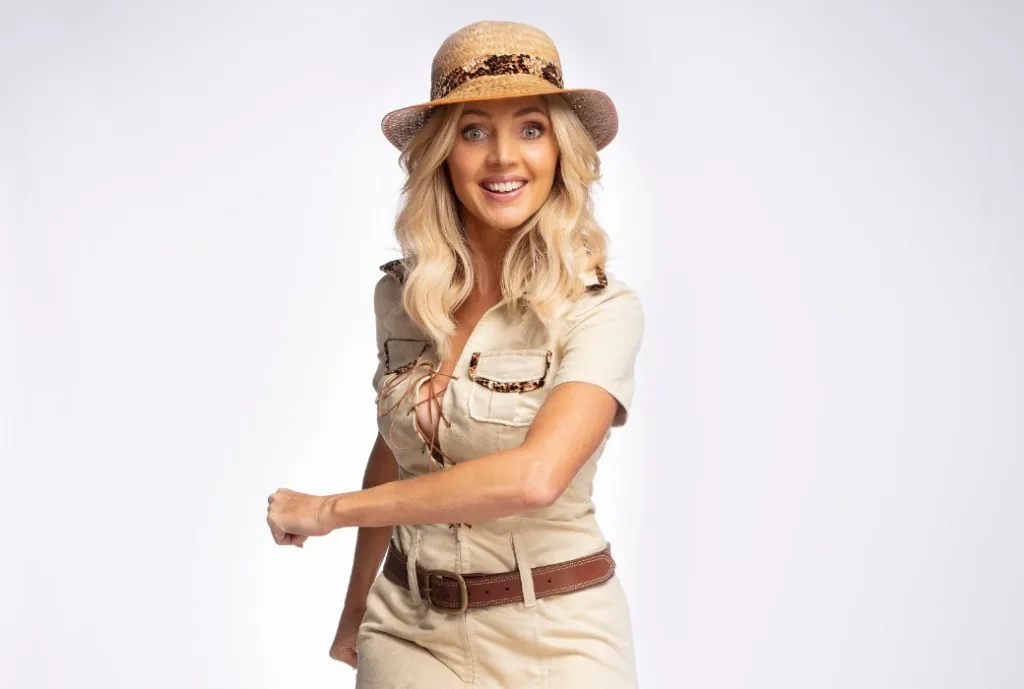
There are some potentially funny ideas here, and the influence of the likes of Borat is clear, but unlike Borat, this is all totally fake. Bushie didn’t really stand for parliament at the recent Federal Election, she didn’t really start a real Only Fans account to save koalas, and she didn’t really shop around her ideas to improve the Olympics. Hence, the opportunity to get laughs out of real journalists or Olympic officials being shocked and appalled by what she’s doing isn’t there. Instead, we get fake TV news stories and fake newspaper headlines, and the whole thing has the look of a sequence from Housos where Frankie’s filmed by news cameras whacking some politician with a thong.
The Bush Blonde… might work better as a character-led sketch show or sitcom, but it would also need much better material. Or else it would just be Housos but with a woman.
The comedy is better thought-through in Time To Die, but only slightly funnier. And, yes, that is deliberate, except why would you deliberately make your comedy less funny?
In Time To Die, hosts Gen Fricker and Ben Russell ask Tom Cashman and Sonia Di Iorio to write bad stand-up material for each other, which they then have to perform at real comedy clubs, in front of unsuspecting audiences. With the help of Tommy Little and Mel Buttle, Cashman writes a lame set about cheese for Di Iorio, while Di Iorio writes a routine for Cashman that suggests he’s a borderline sex offender.
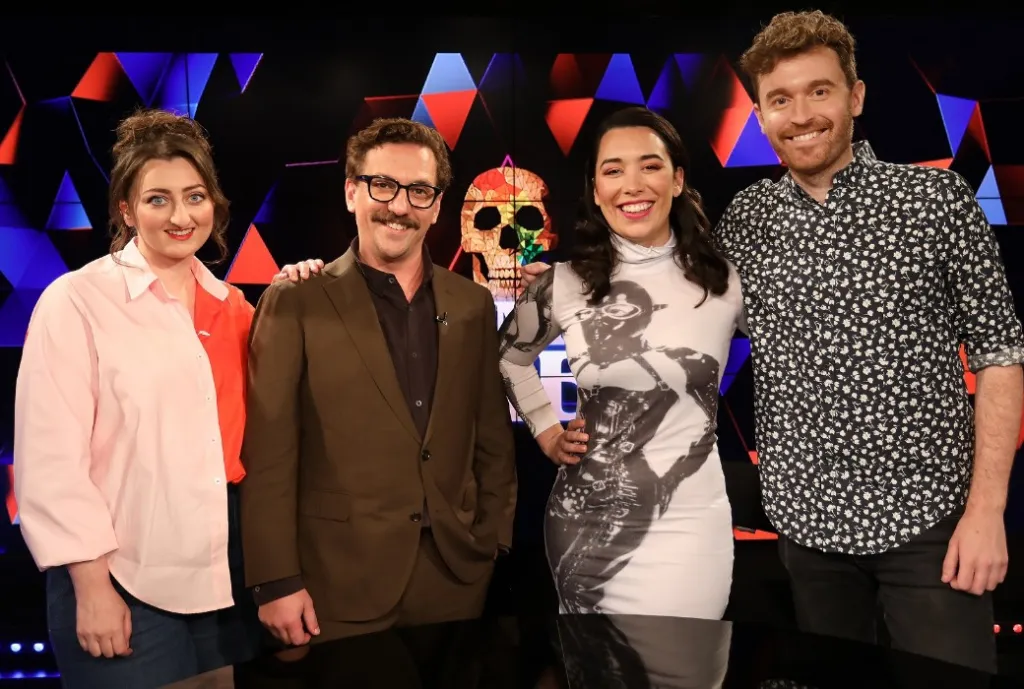
Who will be the best at writing bad material? And who will be the best at getting laughs from it? In one sense, it doesn’t matter, as surely any deliberately bad comedy is… well… bad. And indeed, Cashman and Di Iorio both struggle to get laughs no matter how hard they try. Their flailing about, and the obvious bafflement-bordering-on-hatred of the audience, is kind of amusing but it’s hard to see anyone other than comedy nerds wanting to watch this week after week.
Yes, it’s semi-interesting to see the thought process behind the creation of the routines, but it’s also something that most people watching comedy wouldn’t find that interesting. Most audiences for comedy, oddly enough, just want to laugh.
Should either of these shows get a series? The short answer is no. The Bush Blonde vs The World either needs to be a real Borat-style prank show or to lean into the fake and become a sketch show or sitcom. As for Time To Die, it kind of works as a one-off exploration of why stand-up can go wrong. But it’s hard to see anyone wanting to watch this every week when there are plenty of other places where you can watch stand-up that’s actually good.
Sad as Hell
Well, it may not be a surprise, but it’s definitely still a shock:
(the bad news here isn’t the bit about there being a new season – keep reading)
As Micallef himself points out, he’s pushing sixty – a perfectly reasonable age to decide to slow things down a little. Comedy is traditionally a young person’s game, and while Mad as Hell has never really shown its age (unlike The Weekly, which often seems to have been born seventy), there has been the occasional moment in the last few seasons where the show has taken a noticeably older view of current trends. Not a bad thing! But a thing still.
More importantly for the non-Micallef segment of those affected by this decision, it does currently seem slightly more likely that we actually will get a real replacement for Mad as Hell and not just an announcement that the ABC remains committed to topical satire followed a year and a half later by a one-off special hosted by one of the original Chaser team. If absolutely nothing else, the new federal government should be providing the ABC with slightly more money; that’s good, right?
But realistically, this is shithouse news on pretty much every level. There’ll be plenty of time later on to discuss exactly what we’ll be losing when we lose Mad as Hell: let’s look at what we almost certainly won’t be gaining.
Fresh faces? That’d be great… except that the ABC hasn’t given space to any fresh satirical faces since they axed Tonightly, and that was more of a wacky tonight show than a scalpel-sharp dissection of our current social climate.
The ABC’s current frontline satirists – both of whom you’d better believe are making a few calls to sound out support as you read this – are, to be blunt, not great at their jobs. Do we want more of them, or just people chosen by the people who gave us more of them?
The tiny possible upside to the whole “where are the young fresh satirists?” deal is that Micallef was a very unlikely pick for top satirist when he started out a billion years ago with Newstopia. What he was, was a very funny man with a number of equally funny friends who found themselves doing news comedy because that was the job(s) being offered.
So our suggestion to the ABC: find someone very funny and ask them if they’d like to make fun of the government, because otherwise Charles Firth is going to be involved.
Micallef goes on to suggest that all hope may not be lost: maybe Mad as Hell can live on without him. Get Kat Stewart to host: problem solved. But it feels safe to say that the ABC is not going to give a high profile hosting gig – because keeping the show but losing Micallef turns it into a hosting gig – to someone who isn’t already a big name (could work, is Judith Lucy busy?), or part of the ABC’s rotating roster of regular hosts (will not work).
This is a situation where Wil Anderson’s Mad as Hell is not the worst case scenario, which should tell you just how bad this could get.
The other issue with keeping the show going is that, with all due respect to everyone involved, this almost never works. Remember the 2014 version of Spicks & Specks? The ABC (and SBS) trying to make movie shows work without Margaret & David? The (AFL) Footy Show staggering on for years past its prime once Trevor Marmalade got the chop? Every single thing Max Gillies did since The Gillies Report?
Giving (for example) Professor Ian Orbspider his own science series is both a crap idea and also the only kind of spin-off that might possibly be worthwhile. Much as we’d love to cling to the idea that Mad as Hell could go on without Micallef – because seriously, and we can’t stress this enough, as things currently stand without it the ABC basically has no comedy content worthy of the name – watching any random episode will show you just how much of the show is just Micallef doing his thing.
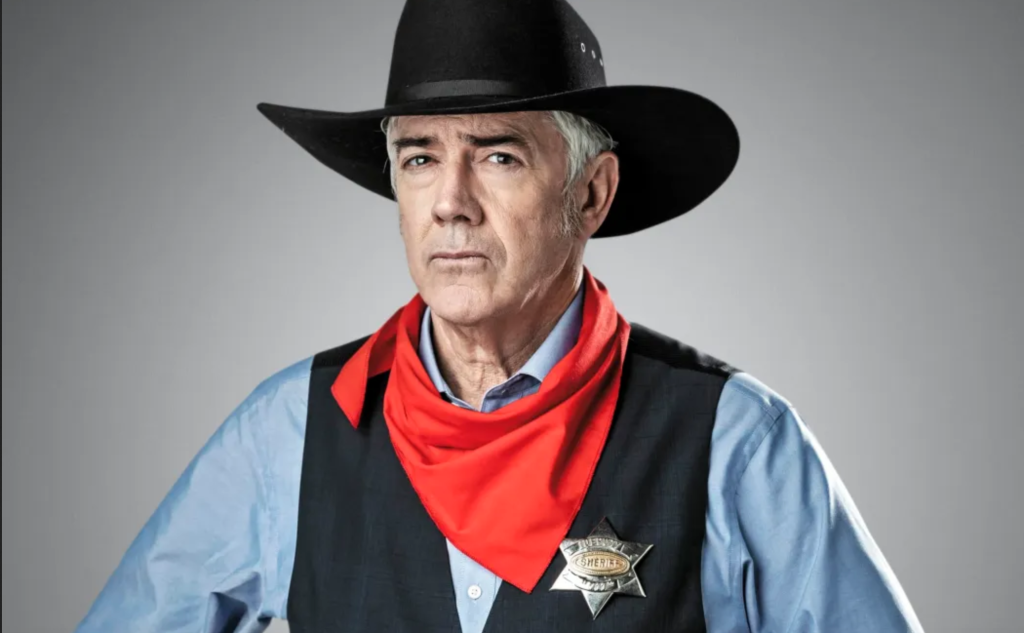
Cut all his bits out and you’re left with a handful of sketches and maybe a few interviews where his persona isn’t vital to selling the jokes. The rest of the team are excellent, and losing them from our screens would be a massive blow. But if their future isn’t going to involve Shaun Micallef as host then they need to come up with a new format that will show them off to their best – not the same show only now with Tom Gleeson as host.
And while we’d love to agree with Micallef that there’s never been a better time for him to first put on a hat and then hang it up, in the real world the ABC’s comedy output has been in serious decline for a decade now and there simply isn’t enough depth in their – or Australia’s – current comedy roster for a decent replacement to step up.
Everyone out there (and we’ve been looking) is either an old hand who’s failed to show the level of ability required or an unproven young gun who’s main skill is networking on twitter. A big part of why Mad as Hell‘s brand of topical comedy worked was because it was put together by people whose idea of (sketch) comedy didn’t come from social media: has Twitter ruined a generation of Australian satirists? We’ll never know, but only because they might have been shithouse anyway.
Mad as Hell didn’t come out of nowhere, but its replacement is almost certainly going to have to. You can point to half a dozen or more skilled and funny current comedy performers who in theory would be brilliant heading up a satirical program, and yet it’s all too likely that any show fronted by them is going to have the training wheels on just long enough for it to get axed as a failure.
This is important to stress: whatever comes next shouldn’t be some entry-level showcase for up and coming talent. The ABC definitely needs those, no argument: they also need a polished, professional product providing what is a central part of the ABC’s core mission. Replacing it with a couple of (for example) Triple J breakfast hosts with their own twisted take on the news isn’t going to cut it.
This was a day everyone could see coming. There should have been multiple ongoing opportunities for new talent to get the experience required to take over a top gig like this. There should be young comedians with multiple series under their belt champing at the bit for a seat at the big table.
Instead, there’s nothing. And not a lot of time for things to turn around.

